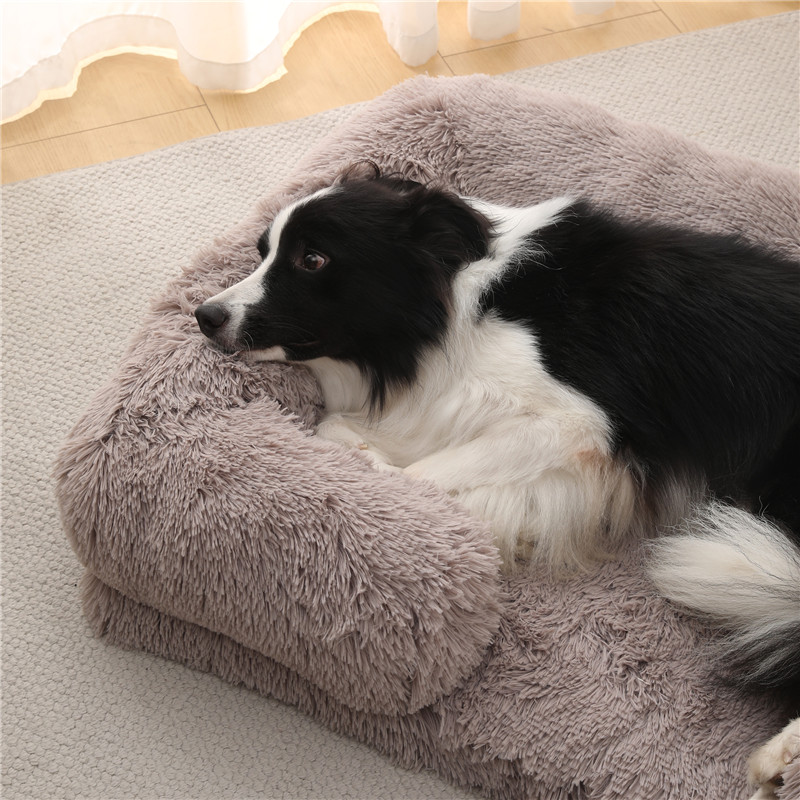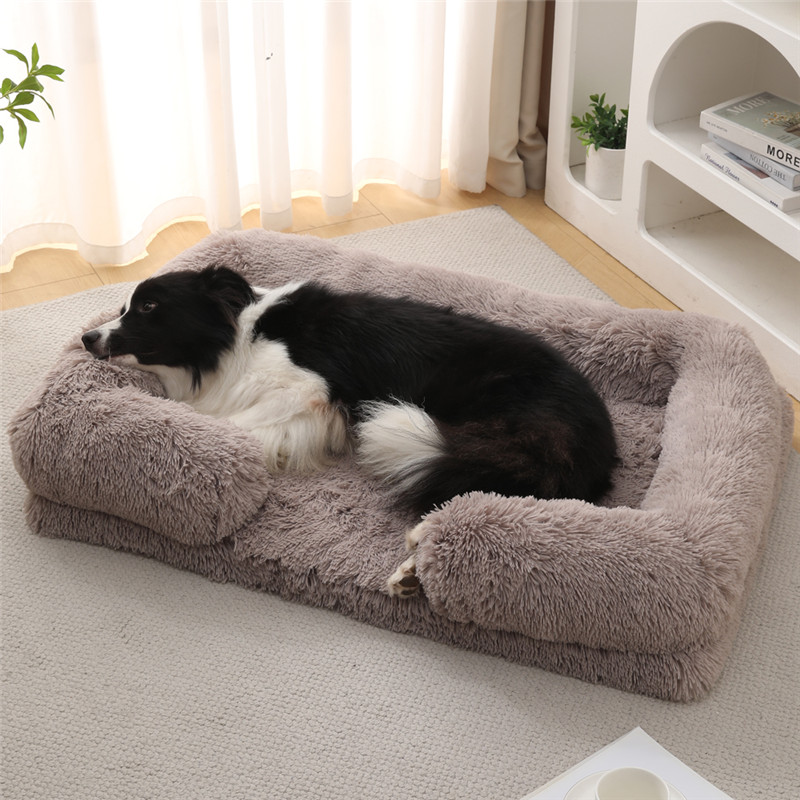What is Kennel Cough?
Kennel cough, or canine infectious tracheobronchitis, is a respiratory disorder in dogs. It involves inflammation in the trachea and bronchi. This condition is highly contagious among dogs. Dogs typically acquire it in places with high canine concentrations, such as kennels or parks. So, how long is a dog contagious with kennel cough?

Symptoms of Kennel Cough
The primary symptom of kennel cough includes a persistent, forceful cough. It may sound like your dog has something stuck in their throat. Dogs might also display sneezing, runny nose, or eye discharge. Some dogs could exhibit lethargy or a decrease in appetite.
Causes of Kennel Cough
Kennel cough can be caused by various viruses and bacteria. The most common include Bordetella bronchiseptica and the canine parainfluenza virus. Dogs can catch it by inhaling infected particles in the air or through direct contact. Shared items like bowls or toys also spread the bacteria and viruses causing the infection.
How Kennel Cough Spreads
Understanding how kennel cough spreads is key to prevention and containment. As a highly contagious respiratory disease, it moves quickly between dogs.
Contagious Period for Kennel Cough
After a dog contracts the disease, they start showing symptoms within 2 to 14 days. During this time, they can spread kennel cough to other dogs. Even without symptoms, some dogs carry and transmit the infection for months. Dog owners should keep their pets away from others until fully recovered.
Environmental Factors Influencing Transmission
Kennel cough thrives in environments with close quarters, such as kennels and shelters. Factors that increase spread include crowded spaces, poor ventilation, and stress from travel. Exposure to dust or smoke can also make dogs more vulnerable to catching kennel cough.
Diagnosis of Kennel Cough
Diagnosing kennel cough in dogs involves observing clinical signs and considering the dog’s history. Effective diagnosis helps in providing the right treatment and care.
Clinical Signs and History
To diagnose kennel cough, vets look for a dry hacking cough. This cough may sound like the dog has something in its throat. Runny nose, sneezing, and eye discharge are also signs. Vets will ask about recent contact with other dogs and places visited, like dog parks or kennels. They’ll check if symptoms started after these visits, within 2 to 14 days. They’ll also ask if the dog has been more tired or eating less.
Diagnostic Approaches
There are no specific lab tests for kennel cough. Vets base diagnoses on symptoms and history. Still, they may request chest x-rays or blood work. These tests help rule out more serious conditions, like pneumonia. If a dog’s symptoms are severe, the vet may test for specific viruses or bacteria. This involves throat swabs and PCR tests. Discovering the exact cause can guide treatment decisions.

Treatment Options for Kennel Cough
When your dog gets diagnosed with kennel cough, treatment can vary. The focus is on making your dog comfortable and stopping the spread to other animals. There are both home remedies that you can try and medical treatments that your vet might recommend.
Home Remedies and Care
For most dogs with mild kennel cough, here’s what you can do at home:
- Ensure rest: Limit your dog’s physical activities. Rest helps to recover faster.
- Maintain humidity: Use a humidifier or take your dog into a steamy bathroom. This can help with your dog’s breathing.
- Provide fresh water: Encourage them to drink plenty of fluids to stay hydrated.
- Use a harness: Swap out a collar for a harness to reduce pressure on the throat.
- Keep them warm: A warm environment helps ease breathing issues.
- Isolate your pet: Prevent contact with other dogs to stop the disease from spreading.
Remember, kennel cough can sound severe, but it’s often not a serious illness. These home treatments usually help manage mild symptoms. Yet, always watch for signs of worsening.
Medical Treatments and Antibiotics
If the kennel cough is more severe, your vet may suggest medical treatments:
- Cough suppressants: These can help ease the coughing fits.
- Anti-inflammatory drugs: These may be used to reduce throat inflammation.
- Antibiotics: They’re reserved for cases where a bacterial infection is suspected.
- Increased humidity: Veterinary clinics might use specialized equipment to keep the air moist.
- Nutrition support: If your dog isn’t eating, your vet might recommend special food.
Antibiotics are typically not necessary for uncomplicated kennel cough. It’s a self-limiting condition that usually resolves with time. But, antibiotics might be needed for infections with Bordetella bronchiseptica or to prevent secondary bacterial infections. Always follow your vet’s advice. Kennel cough recovery can take anywhere from a week to a month, depending on severity and treatment.
Prevention and Vaccination
Preventing kennel cough involves understanding how it spreads and taking steps to avoid exposure. Vaccinations are a crucial part of the preventative strategy.
Kennel Cough Vaccine Information
Your dog’s vaccine against kennel cough is important. The vaccine targets Bordetella bronchiseptica, which is a main cause. Other vaccines protect against viruses like canine parainfluenza. No vaccine works 100%, but they do reduce the risk. Talk to your vet about the best vaccine for your dog. Ask about when to give it and how often to renew.

Preventive Measures for Kennel Cough
Keep your dog from getting kennel cough with a few key steps. Avoid places with many dogs if your pet isn’t vaccinated. This includes parks and kennels. Make sure your dog’s living space has good air flow and is clean. Don’t let your dog share toys or bowls with sick dogs. Wash your hands after touching any dog. If your dog shows symptoms, keep them away from other dogs until they’re better. This helps stop the spread.
Duration of Kennel Cough in Dogs
Typical Recovery Time
The length of time a dog suffers from kennel cough can vary. Most dogs experience symptoms for about 10 to 20 days. With proper care, the condition often resolves without the need for medical intervention. However, young puppies and older dogs may take longer to recover.
Factors Affecting Recovery Duration
Several factors can influence how long a dog remains sick with kennel cough:
- Immune system strength: Dogs with stronger immune systems tend to recover faster.
- Age: Puppies and older dogs usually need more time to heal.
- Medical history: Dogs with previous health issues may experience prolonged symptoms.
- Care quality: Adequate rest, good nutrition, and proper isolation can hasten recovery.
- Treatment response: Dogs responding well to treatments like cough suppressants or antibiotics recover quicker.
By understanding these factors, dog owners can better manage the care of their pets during recovery from kennel cough. Always consult a veterinarian if the symptoms persist or worsen.
Recognizing When It’s More Than Kennel Cough
While kennel cough is common and often not severe, it can sometimes lead to more serious issues. Knowing the signs of complications is key to ensuring your dog’s health.
Signs of Complications
Certain symptoms suggest that your dog’s condition may be more than kennel cough. Look for:
- Persistent cough: If the cough lasts more than 20 days.
- Difficulty breathing: If your dog is struggling to breathe, it’s urgent.
- Lack of energy: If they’re more tired than usual, even after rest.
- Poor appetite: If they stop eating or show less interest in food.
- Fever: If you feel excessive warmth or notice shivering.
- Discharge: If there is unusual nasal or eye discharge.
- Weight loss: If they are losing weight despite eating normally.
These signs can indicate pneumonia or another respiratory condition, not just kennel cough.
When to Consult a Veterinarian
You should see a vet if:
- Symptoms persist: Especially after home care and the typical recovery period.
- Symptoms worsen: If new symptoms show up or current ones get worse.
- You’re uncertain: Whenever you’re in doubt about your dog’s health.
- Before symptoms: Ideally, get a check-up early to avoid complications.
Early veterinary care can prevent conditions from getting worse. Your vet can provide the best advice and treatment for your dog’s illness.